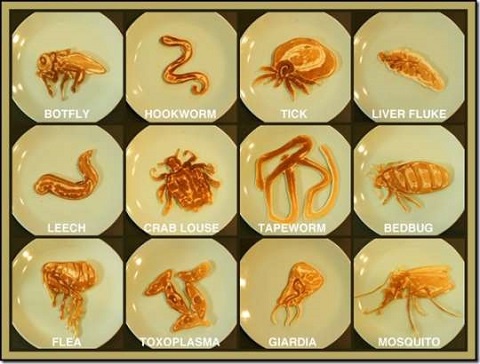According to a new global analysis, one third of parasites could disappear by the next 50 years due to rising temperatures.
It said in a release to the Ghana News Agency that parasites including tapeworms, roundworms, ticks, lice and fleas are mostly known for causing diseases in humans. But they also play a vital role in numerous ecosystems.
They help control wildlife populations and maintain the flow of energy through food chains. The decline in parasite population could dramatically upset the balance of natural ecosystems.
Professor Anna J. Phillips, a research zoologist and curator at Smithsonian Institute, said “having parasites is a good indicator that the ecosystem has been stable.”
“It means the system has a diversity of animals in it and that conditions have been consistent long enough for these complex associations to develop.”
Parasites comprise a large proportion of every ecosystem’s biodiversity but they have been left out of most studies of climate change until now. This is one of the few studies, in which the impact of climate on parasites has been analysed.
To find out how climate change is likely to affect parasite populations, researchers looked at the museum collections. The U.S. National Parasite Collection, run by Smithsonian Institute, contains more than 20 million parasite specimens from thousands of species and some of them date back to as early as 1800s.
While the collection is still expanding, it could serve as a historical database and researchers can use it to predict the geographical distributions of the organisms in the future.
Firstly, researchers tracked the exact location where each specimen came from so they could understand their natural habitat. Then, they applied a range of climate models and used the data to make predictions about the parasites’ survival in the wake of climate change.
Researchers found that 457 parasite species will be impacted by changes in climate under various scenarios. Overall, more than a third of world parasites could be lost by 2070.
“Parasites are definitely going to face major extinction risk in the next 50 years. They are certainly as threatened as any other animal group,” said lead researcher Colin Carlson from University of California, Berkeley.
“If parasites go extinct, we are looking at a potential massive destabilization of ecosystems (which) could have huge unexpected consequences. That doesn’t necessarily work out well for anyone, wildlife or humans.”
Source: GhanaWeb











